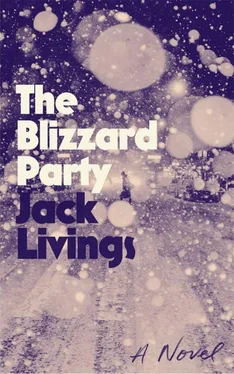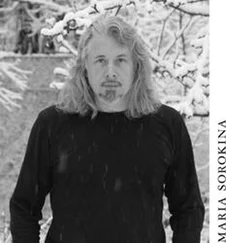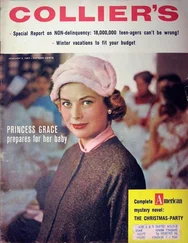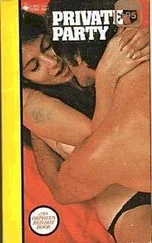What could Bo know about the song except that he loved its dance-hall jungle beat, that he loved Iggy Pop for being a profane presence in the world? What more did he need to know? Did he need to know that Pop and David Bowie wrote and recorded the song at Hansa Studios, a stone’s throw from Checkpoint Charlie? That Pop and Bowie, thrown together in Berlin, settled in to watch Starsky & Hutch every Thursday night on the Armed Forces Network, whose station identifier was a pleasant rhythm of dits and das, a rhythm that Pop and Bowie passed along to drummer Hunt Sales, who immediately recognized it as the beat from the Supremes’ “Can’t Hurry Love,” and cooked up a version that sounded like a big-bore V8 running wide open on a cold, deserted Indiana highway?
If he’d known any of this, would he have been somehow more rabid for the song? Would the rest of the party, who had, incidentally, reacted exactly as Bo had known they would, collectively trampolining, sloshing their drinks all over the Afghan rugs and the calfskin sofas—would they have felt any different? Probably not.
It didn’t matter to my father, either, who mentioned none of it in his book. But it matters to me, that military brat of a song, conceived at AFN, delivered wet and squirmy on the front lines of the Cold War, its birth certificate stamped in a country whose chief arms supplier during both world wars, Krupp AG, had just sold a stake in its operations to the government of Iran.
* * *
At their first meeting, in a booth at Studio 54, bubbles pumping out of tubes hidden in the ceiling, the music so loud it actually made champagne glasses shimmy across the tables, Shahin had yelled at Bo: I’ll tell you a secret!
Bo opened his eyes, mouth, tipped back his head in a pose of open acceptance.
Pipeline management! Shahin yelled.
Bo flashed the thumbs-up, though he’d passed the threshold of aural paralysis about an hour back, when someone had fired an honest-to-god cast-iron naval cannon from the mezzanine at the twelve-foot Godzilla piñata gliding across the dance floor on urethane wheels, spooky as hell, Boom, smoke, paper everywhere, pharmaceutical-grade guts spilled all over the floor. Mob scene. Bo’s ears had flatlined.
Three days later, they met again, this time at Neil’s apartment on Park, in a living room with textured wallpaper and golden tassels on the brocade sofa pillows. If Shahin under the strobes had come off as a prick, Bo accepted that under normal light it was nothing more than standard Oxbridge snottery. Okay, so he’d eaten caviar out of some whore’s cunt in Paris and he’d boxed up at university and beat off under his subfusc with the rest of them, let’s get down to brass tacks, whaddyagot?
Shahin: The problem is not that the Shah will be deposed. He’s an interchangeable part manufactured by your government. He failed to keep his own greed in check and he’ll be overthrown. So be it. What will go with him, unfortunately, are the engineers managing the oil fields. The new regime will replace them with inexperienced engineers whose only qualifications are that they pray five times a day, and then we’ll start to see real problems. Problems with extraction, problems with transport.
Okay, Bo said.
The oil won’t dry up, but it will choke. My suggestion is to look away from Iran for profit. Look domestic. Look for profit in the expansion of the West Texas fields.
I appreciate the advice, but I can buy into the WTI market without you, Bo said.
Shahin shrugged and frowned in the French manner that said, Obviously, asshole.
All right, then, what? Bo said.
I have excellent connections in West Texas.
So do I, Bo said.
Excellent connections.
Bo laughed. Okay.
I know a man who knows everyone in West Texas and beyond.
Ah, Bo said, gears beginning to turn. Saudi?
He is Saudi, yes, Shahin said.
Aha.
He is currently partner in thirty-two ventures in West Texas.
Only thirty-two?
Thirty-two under the family name. There are more, you’re correct.
How many?
Shahin shrugged again, looked at the ceiling. Fifty? he said. Seventy-five?
It was as though a stream of warm, fragrant oil had been poured over Bo’s naked body. He struggled to control the muscles in his face, which were conspiring to set off a smile that would introduce the corners of his lips to his fucking eyebrows.
A partner of yours? Bo said.
Of sorts. We were up at Millfield together. And it is his opinion that American domestic production is set to rise. But I only tell you this as thanks for your time. I’m in shipping, what would I know about oil?
Right, Bo said. You’re in shipping. He knew what was coming next, and he sat back and waited.
Shahin obliged, of course, cuing the origin story. My father, he said, was born into a feudal system and orphaned when he was ten. What happens to an orphan in Iran in 1920? He becomes a beggar. But my father was taken in by the caretaker at a mosque, a man named Parizad. He learned to read, he studied the Quran. He became a porter. By the time he was twenty, he had an army of porters working for him. After the British and Russians left in ’46, his operations expanded, and after years of humble hard work he was in a position to take over some shipping routes in the Caspian. As you know, we now control three companies. Two overland, the other covering international waterways. To be frank, I’m having difficulty liquidating the companies, and every day my country moves a little closer to its inevitable fate. My family’s money is staked in accounts outside the country—and that money is not money I can risk, you understand? That is money for unborn generations.
I understand.
I am an honest businessman, as my father was. My father cared for Parizad until the day he died. We are loyal. Until I am able to liquidate my companies, I need a partner who will—for lack of a better term—front me some cash. And for his risk, I’ll pay back at a more-than-fair rate.
Gotcha, Bo said. And where do you plan to put the cash?
I’d like to make an investment in the West Texas fields, of course, Shahin said. I would never make a recommendation I’m not willing to take myself.
And what’s my rate of return?
For this particular line of credit?
For this particular line of credit, yes.
Five percent and a percentage of the sale price of the shipping companies.
Gotcha, Bo said. He could get eight percent and a toaster at the Harlem Savings Bank. This was all expected. He’d walked into the room assuming the conversation was a front. The sale of the shipping companies—which would never happen—the absurdly low interest rate, all of it was stagecraft, polite misdirection. But because he’s on his knees, he’s going to make me come out and ask for it, Bo thought.
What more can I offer you? Shahin said. More than five percent?
Five isn’t much.
Even in this market, Shahin said, the companies are worth thirty million. The assets alone would bring in fifteen. What do you want? Ten percent of the sale price?
What a performance, Bo thought. What about the Saudi? he said.
Sorry? Shahin said.
Good god, Bo thought. Can we stop fingering it and get to the good part?
What about your Saudi friend? He doesn’t want to help you out with a little loan?
Oh no, not his line at all. He’s a construction and oil man.
Got it, Bo said. What about I help you, you help me?
I see, Shahin said. With the Saudi.
And you can keep it at five percent on the loan, Bo said.
That’s very generous, Shahin said. I believe I can arrange a very favorable introduction. Shahin paused, as if he were thinking about it, then added, I can guarantee a favorable introduction, in fact.
Читать дальше












